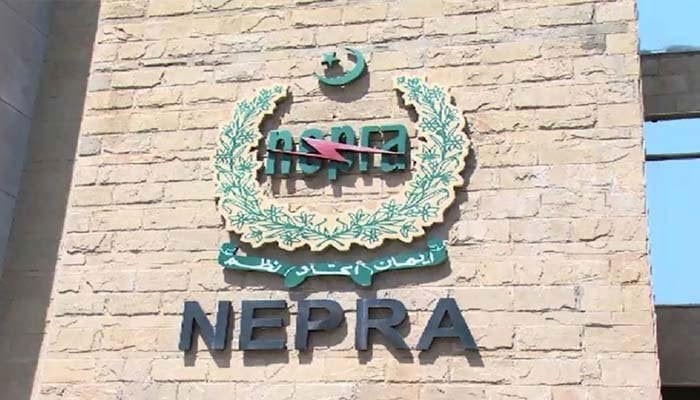New rebased electricity tariff for 2024-25 under IMF directives from July 1
NEPRA is scheduled to come up on July 1, 2024, with the rebased tariff for the next financial year 2024-25
ISLAMABAD: The electric power regulator NEPRA is scheduled to come up on July 1, 2024, with the rebased tariff for the next financial year 2024-25 keeping in view the total revenue requirement for the said fiscal, and more importantly, the circular debt management plan will be carved out in light of the rebased tariff for the new fiscal.
“Every year, the rebasing of the power tariff is determined as per IMF directives and is applied to all categories of consumers, but fluctuations in tariff depend upon the subsidies budgeted by the government for certain categories. This is also the regulatory requirement to determine a new base tariff, which is essential to ensuring on-time recovery of generation costs, system charges, and distribution charges,” a senior official of the energy ministry told The News.
The power regulator, however, has to calculate the new base tariff for FY25 based on assumptions about overall electricity sales growth in 2024-25, US dollar-rupee parity, inflation, interest rates, capacities, and energy purchase price.
The government last time increased the base tariff by Rs4.96 per unit, taking the base tariff to Rs29.78 per unit to achieve the revenue target of 3.281 trillion. In 2022, the PTI government raised the base tariff by Rs7.91 per unit in three phases, due to which the base tariff jumped to Rs24.82 per unit from Rs16.91 per unit.
As of today, the power circular debt stands at Rs2.55 trillion, the capacity payments stand at Rs2.1 trillion, and more importantly, electricity sale growth has reduced, particularly in the industrial sector. The sale of electricity to the industrial sector has gone down by 30 percent and in the months to come, electricity consumption is likely to further tumble to 50 percent mainly because of the higher electricity tariffs.
For the financial year 2023-24, the dollar value was fixed at Rs286, and despite this very fact, the regulator is still increasing the monthly fuel charges just because of system constraints, and the NTDC has to evacuate the costly electricity based on furnace oil and diesel from Punjab instead of the cheaper power from the south.
-
 Kanye West's Last Measure To Save Bianca Censori Marriage As He Tries To Salvage Image
Kanye West's Last Measure To Save Bianca Censori Marriage As He Tries To Salvage Image -
 Kim Kardashian Finally Takes 'clear Stand' On Meghan Markle, Prince Harry
Kim Kardashian Finally Takes 'clear Stand' On Meghan Markle, Prince Harry -
 Christina Applegate Makes Rare Confession About What Inspires Her To Keep Going In Life
Christina Applegate Makes Rare Confession About What Inspires Her To Keep Going In Life -
 Patrick J. Adams Shares The Moment That Changed His Life
Patrick J. Adams Shares The Moment That Changed His Life -
 Selena Gomez Getting Divorce From Benny Blanco Over His Unhygienic Antics?
Selena Gomez Getting Divorce From Benny Blanco Over His Unhygienic Antics? -
 Meet Arvid Lindblad: Here’s Everything To Know About Youngest F1 Driver And New Face Of British Racing
Meet Arvid Lindblad: Here’s Everything To Know About Youngest F1 Driver And New Face Of British Racing -
 At Least 30 Dead After Heavy Rains Hit Southeastern Brazil, 39 Missing
At Least 30 Dead After Heavy Rains Hit Southeastern Brazil, 39 Missing -
 Courtney Love Recalls How ‘comparison’ Left Marianne Faithfull ‘broken’
Courtney Love Recalls How ‘comparison’ Left Marianne Faithfull ‘broken’ -
 Pedro Pascal Confirms Dating Rumors With Luke Evans' Former Boyfriend Rafael Olarra?
Pedro Pascal Confirms Dating Rumors With Luke Evans' Former Boyfriend Rafael Olarra? -
 Ghost's Tobias Forge Makes Big Announcement After Concluding 'Skeletour World' Tour
Ghost's Tobias Forge Makes Big Announcement After Concluding 'Skeletour World' Tour -
 Katherine Short Became Vocal ‘mental Illness’ Advocate Years Before Death
Katherine Short Became Vocal ‘mental Illness’ Advocate Years Before Death -
 SK Hynix Unveils $15 Billion Semiconductor Facility Investment Plan In South Korea
SK Hynix Unveils $15 Billion Semiconductor Facility Investment Plan In South Korea -
 Buckingham Palace Shares Major Update After Meghan Markle, Harry Arrived In Jordan
Buckingham Palace Shares Major Update After Meghan Markle, Harry Arrived In Jordan -
 Demi Lovato Claims Fans Make Mental Health Struggle Easier
Demi Lovato Claims Fans Make Mental Health Struggle Easier -
 King Hospitalized In Spain, Royal Family Confirms
King Hospitalized In Spain, Royal Family Confirms -
 Japan Launches AI Robot Monk To Offer Spiritual Guidance
Japan Launches AI Robot Monk To Offer Spiritual Guidance




